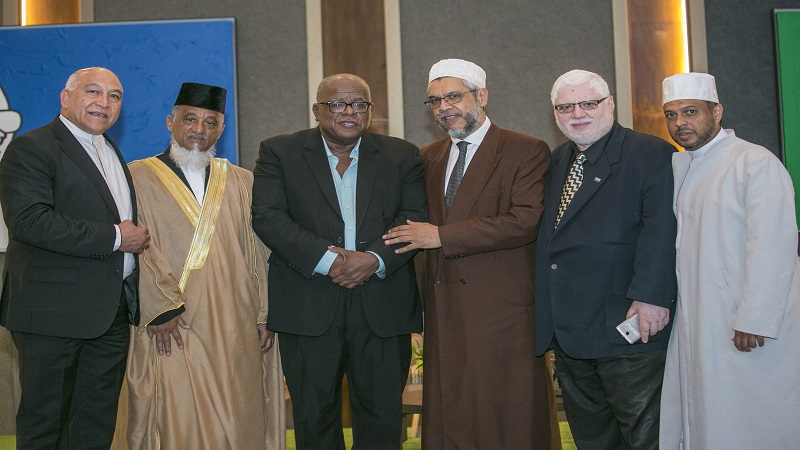On Saturday evening about 100 people gathered at the Artscape Theatre in celebration of the International Peace College of South Africa’s (IPSA) annual banquet. The event was themed “Advancing Servant Leadership” and education expert Prof Jonathan Jansen was the keynote speaker. The main beneficiary of the gala dinner was the Sheikh Yusuf Waqf Fund, which aims to boost its growth to R50 million over the next few years. The purpose of the event was to raise funds to maintain scholarships for students who wish to continue their tertiary education in Islamic Studies at the college.
IPSA’s mission is to create academics, intellectuals and leaders who combine the qualities of faith, good character and knowledge in their learning, teaching and research in an environment that nurtures tolerance and appreciation for diversity, intercultural understanding and civilizational dialogue.
IPSA’s departments include both Arabic, and Islamic Studies. The primary goals and projected outcomes for the student among other things are:
To equip students with the ability to conduct research on the different aspects of Islamic Studies, including Islamic tradition and civilization.
To play a leading role in the interpretation of Islamic teachings according to the needs of contemporary South African society.
To prepare scholars of Islamic Studies with a good command over the different areas of the Islamic disciplines such as Qurʼān, Tafsīr, Ḥadīth, Sharīʽah law, contemporary and traditional Islamic thought, history, culture, and Islamic civilization in general .
To promote the concept of Wasaṭīyyah (moderation) by contributing towards an environment of dialogue between Muslim societies and other civil society groupings and develop multi-faith relations.
The principal of IPSA Sheikh Ighsaan Taliep said: “We know of course it’s sometimes restraining if we can only rely on Zakah. We don’t only want to rely on Zakah because then you can only go according to the criterion of need.”
Sheikh Taliep goes on further to plea to the community to reach deep within their hearts to help IPSA continue their sterling work in providing students the opportunity to enhance their intellectual experiences within a rich heritage of Arab and Islamic culture and tradition.
“We really call upon our Muslim community, especially businesses to really consider in participating in that waqf fund.”

This weekend IPSA elevated its trajectory to the fulfilment of this vision when it celebrated a historic milestone through the launch of the new and exciting Masters in Applied Islamic Thought (MAIT). The design of the new MAIT occurred in consultation with a multidisciplinary committee of academics. The result is a program that is designed to respond to contemporary juridical, spiritual, intellectual, aesthetic, political, social and economic challenges from an Islamic perspective. Its primary purpose is to contribute to the scholarly study and application of Islam to contemporary challenges and provide students from diverse qualification backgrounds, with new methods of addressing complex contemporary challenges in an integrated fashion.
The refinement of the concept of servant leadership in higher education was further enhanced through the keynote address on the topic by Prof Jonathan Jansen who noted that the prevailing absence of servant leadership in political circles is what encourages the feeding frenzy at the trough, but also challenged the audience to reflect critically on how, at times, it may become easy to cross ethical boundaries. Undeniably a leading South African voice advocating for the just redress of the vast and complex inequalities that perpetuate to this day for the majority of citizens of our country, Prof Jansen further shared thoughts on his own ways and means of staying grounded through giving back to the community.
As all faith communities do, Muslims too believe they have a critical role to play toward restorative justice and social cohesion in our country. The common challenge, it would appear, is the formulation of well-researched and practical interventions. IPSA is committed to contribute to this enterprise through its academic offerings and community development programs,” IPSA said in a statement.
VOC






 WhatsApp us
WhatsApp us 

